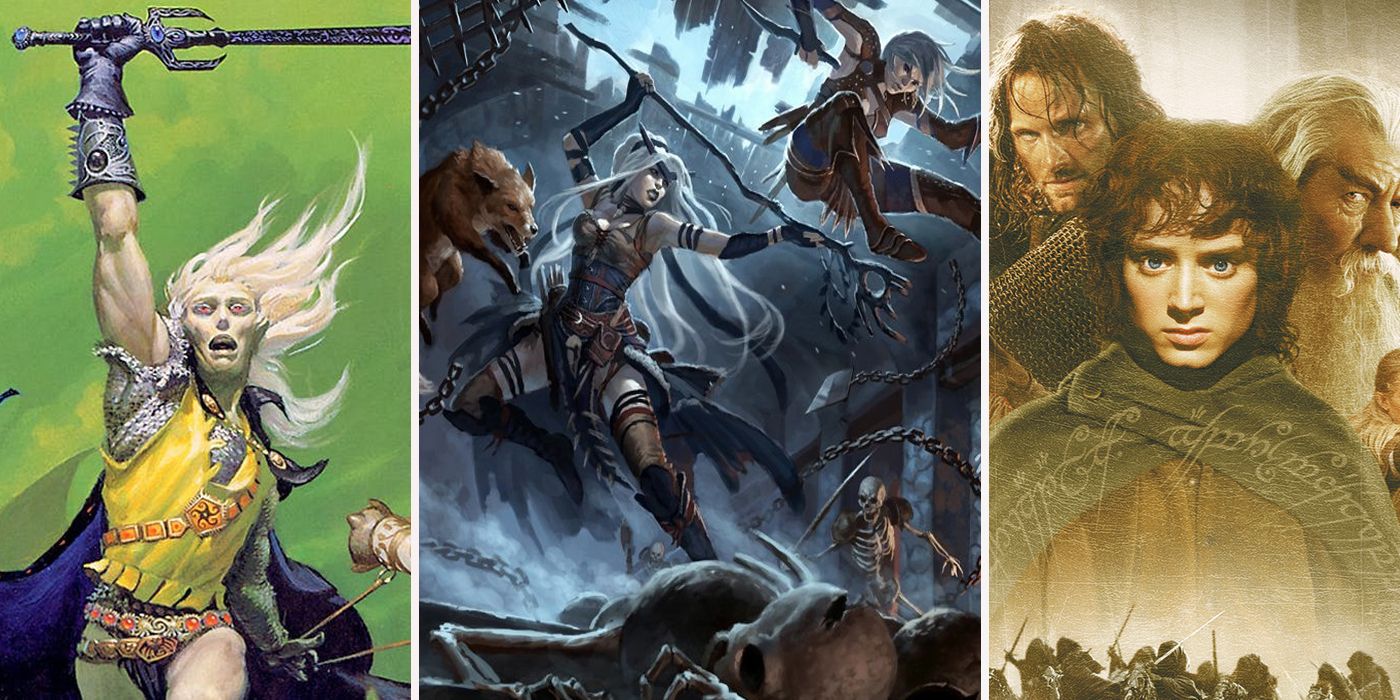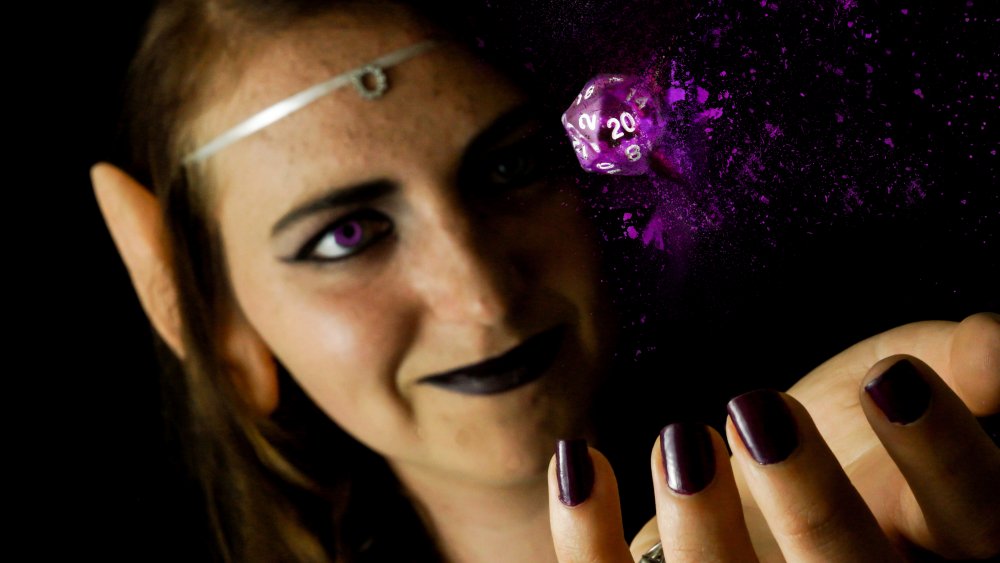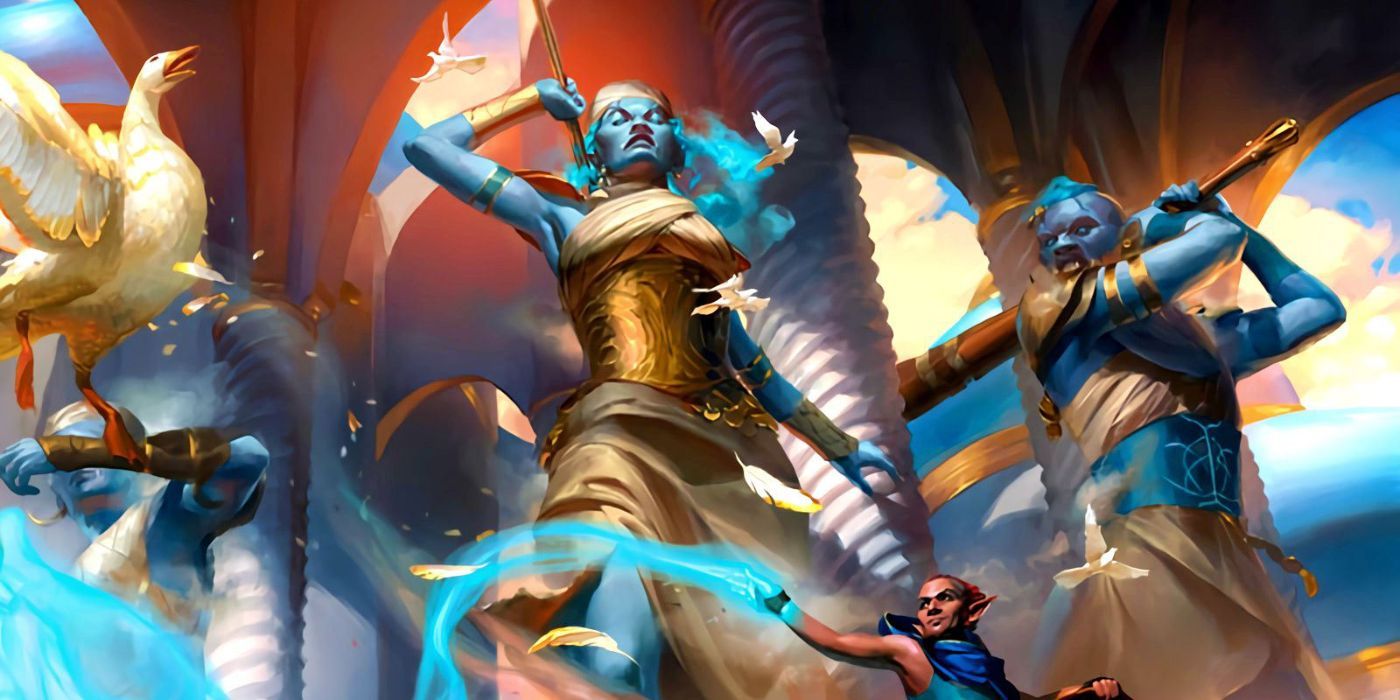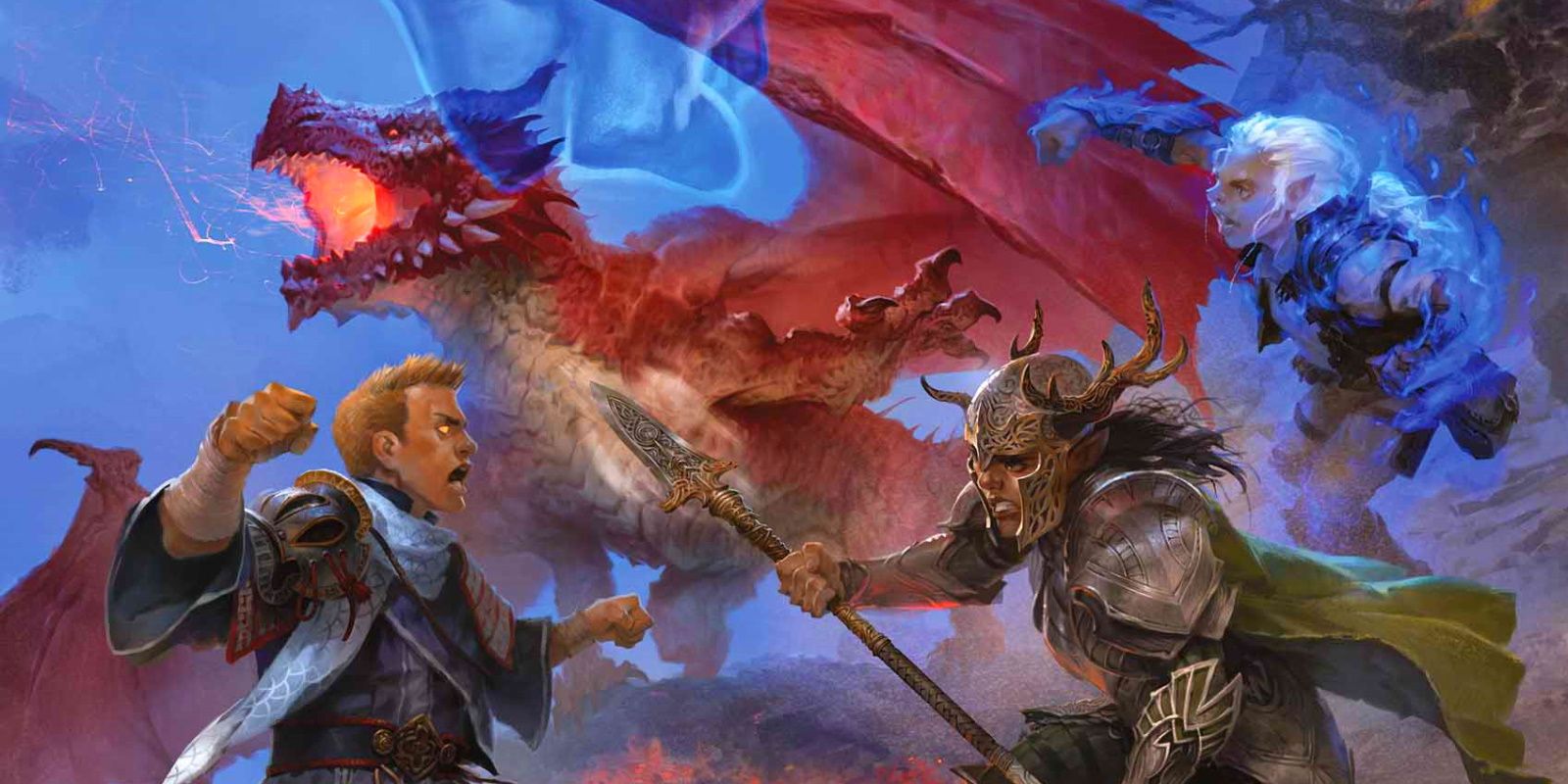Antwort What is the controversy with Dungeons and Dragons? Weitere Antworten – What is the controversy of Dungeons and Dragons
At various times in its history, Dungeons & Dragons has received bad publicity for alleged or perceived promotion of such practices as Satanism, witchcraft, suicide, pornography, and murder. Especially during the 1980s, certain religious groups accused the game of encouraging sorcery and the veneration of demons.In Dungeons & Dragons, the players form an adventuring party who explore fantasy worlds together as they embark on epic quests and level up in experience. The Dungeon Master (also known as the DM) is the game's referee and storyteller. There's no winning or losing in D&D—at least, not in the conventional way.Other than the violent scenes and scary visual images noted above, there's nothing of concern in Dungeons and Dragons: Honor Among Thieves for children aged 8-13 years. There's nothing of concern in Dungeons and Dragons: Honor Among Thieves for children aged over 13 years.
Is Dungeons and Dragons school appropriate : Dungeons and Dragons and other Tabletop Role Playing Games (TTRPGs) are a great way to sneakily build skills that children will need not only in school, but later in life. Some of those skills are: Vocabulary Building, Problem Solving, Team Work, Communication, Listening, Storytelling and Imagination growth.
Why is D&D being boycotted
With Hasbro and Wizards of the Coast currently under scrutiny for controversial actions, the success or failure of the upcoming Dungeons and Dragons film could impact the game as well. The boycott is being called because of Wizards of the Coast's recent decision to change the Open Game License in One D&D.
Why are people boycotting Dungeons and Dragons : Hasbro has pissed off 'Dungeons & Dragons' fans with a rumored change to the game's licensing agreement. A 'Dungeons & Dragons' leak has fans furious and vowing to abandon the popular role-playing game. A rumored change would give D&D's owner more rights over user-created content for the game — and a cut of any profits …
The most famous case was that of James Dallas Egbert III, a child prodigy who was attending Michigan State University at age 16. He died in the steam tunnels beneath his University. The media largely sensationalized his death, talking about how D&D corrupted an innocent youth, a genius, a beacon of hope, etc. etc.
D&D is a great way for kids and adults alike to engage their creativity, employ their problem-solving skills and just have fun. So, gather around the dining room table, put aside the electronics and settle in for hours (and hours and hours) of entertainment.
How to explain D&D to a child
Start by explaining that D&D is a game in which a group of players go on an adventure and solve problems as a team. You might add that D&D was the game that inspired many of today's most popular video games.A disagreement over the licensing terms to a tabletop roleplaying game might seem like inside baseball or a minor trashcan fire, but the OGL battle says a lot about the power of players to own their games, and how corporate America regards and treats its customers and fans.There's a growing body of research that underlines the way D&D and other role-playing games improve mental health outcomes: Studies show these games can improve participants' empathy, strategic thinking, moral development, and sense of social connection.
Researchers have found that people who play the game Dungeons and Dragons (D&D) show improvements in their mental health. James Cook University PhD researcher Alyssia Merrick led the study, which analysed the effect the game had on 25 people who played over eight weeks.
How to explain D&D to parents : Dungeons & Dragons is simply interactive storytelling. Players gather together in one room to take part in an imaginary adventure that often involves exploring a castle or dungeon, defeating monsters and discovering treasure.
Why do people want to boycott D&D : The boycott is being called because of Wizards of the Coast's recent decision to change the Open Game License in One D&D. Rumors, statements, and insider leaks showed Dungeons and Dragons was trying to revoke the OGL, imposing new restrictions and control over third-party creators.
Why are people angry at Wizards of the Coast
If Wizards of the Coast implements the leaked update to the OGL, they will be prioritizing profit and control over protecting and encouraging their community, and they risk damaging the vibrant ecosystem that made D&D so popular in the first place," Di told Insider.
My answer: By its nature, Dungeons & Dragons embodies all of the characteristics of what I try to achieve in group therapy with autistic individuals and individuals with autism. It is inherently social, inherently cooperative, and inherently interactive.She said participants demonstrated significant decreases in depression, stress and anxiety and significant increases in self-esteem and self-efficacy over the study period. “Players often say playing D&D is cathartic and provides a space to express emotions in the game without concern for outside consequences.
Is DND good for your brain : There's a growing body of research that underlines the way D&D and other role-playing games improve mental health outcomes: Studies show these games can improve participants' empathy, strategic thinking, moral development, and sense of social connection.








